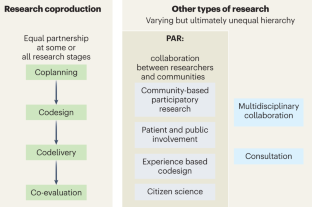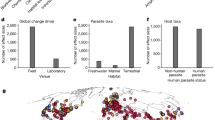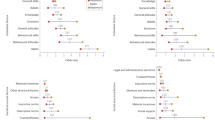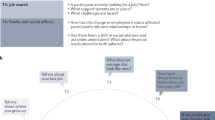Abstract
The coproduction of health research represents an important advance in the realm of participatory methodologies, which have evolved over the past five decades. This transition to a collaborative approach emphasizes shared control between academic researchers and their partners, fostering a more balanced influence on the research process. This shift not only enhances the quality of the research and the evidence generated, but also increases the likelihood of successful implementation. For Indigenous peoples, coproduced research represents a critical development, enabling a shift from being mere ‘subjects’ of research to being active controllers of the process—including addressing the extractive and oppressive practices of the past. In this Review, we explore how research coproduction with Indigenous peoples is evolving. An ‘Indigenous turn’ embraces the concept of shared control while also considering the principles of reciprocity, the incommensurability of Western and Indigenous knowledge systems, divergent ethical standards, strategic and political differences, and the broader impact of processes and outcomes. To illustrate these ideas, we present examples involving New Zealand’s Māori communities and offer recommendations for further progress.
This is a preview of subscription content, access via your institution
Access options
Access Nature and 54 other Nature Portfolio journals
Get Nature+, our best-value online-access subscription
$29.99 / 30 days
cancel any time
Subscribe to this journal
Receive 12 print issues and online access
$209.00 per year
only $17.42 per issue
Buy this article
- Purchase on Springer Link
- Instant access to full article PDF
Prices may be subject to local taxes which are calculated during checkout


Similar content being viewed by others
References
Durose, C., Perry, B. & Richardson, L. Is co-production a ‘good’ concept? Three responses. Futures 142, 102999 (2022).
Laursen, S. et al. Collaboration across worldviews: managers and scientists on Hawai’i Island utilize knowledge coproduction to facilitate climate change adaptation. Environ. Manag. 62, 619–630 (2018).
Farr, M. et al. Co-producing knowledge in health and social care research: reflections on the challenges and ways to enable more equal relationships. Humanit. Soc. Sci. Commun. 8, 105 (2021).
Cornish, F. et al. Participatory action research. Nat. Rev. Methods Primers 3, 34 (2023).
Masterson, D., Areskoug Josefsson, K., Robert, G., Nylander, E. & Kjellstrom, S. Mapping definitions of co-production and co-design in health and social care: a systematic scoping review providing lessons for the future. Health Expect. 25, 902–913 (2022).
Halvorsrud, K. et al. Identifying evidence of effectiveness in the co-creation of research: a systematic review and meta-analysis of the international healthcare literature. J. Public Health 43, 197–208 (2021).
Osborne, S. P., Radnor, Z. & Strokosch, K. Co-production and the co-creation of value in public services: a suitable case for treatment? Public Manag. Rev. 18, 639–653 (2016).
Oliver, K., Kothari, A. & Mays, N. The dark side of coproduction: do the costs outweigh the benefits for health research? Health Res. Policy Syst. 17, 33 (2019).
Ortiz-Prado, E. et al. Potential research ethics violations against an indigenous tribe in Ecuador: a mixed methods approach. BMC Med. Ethics 21, 100 (2020).
McKenzie, D., Whiu, T. A., Matahaere-Atariki, D., Goldsmith, K. & Te Puni Kōkiri. Co-production in a Māori context. Soc. Policy J. N. Z. 33, 32–46 (2008)
Latulippe, N. & Klenk, N. Making room and moving over: knowledge co-production, Indigenous knowledge sovereignty and the politics of global environmental change decision-making. Curr. Opin. Environ. Sustain. 42, 7–14 (2020).
Yua, E., Raymond-Yakoubian, J., Daniel, R. A. & Behe, C. A framework for co-production of knowledge in the context of Arctic research. Ecol. Soc. 27, 34 (2022).
Manuel-Navarrete, D., Buzinde, C. N. & Swanson, T. Fostering horizontal knowledge co-production with Indigenous people by leveraging researchers’ transdisciplinary intentions. Ecol. Soc. 26, 22 (2021).
Haines, J., Du, J. T., Geursen, G., Gao, J., & Trevorrow, E. Understanding Elders’ knowledge creation to strengthen Indigenous ethical knowledge sharing. In Proc. RAILS - Research Applications, Information and Library Studies, 2016, School of Information Management, Victoria University of Wellington, New Zealand, 6-8 December, 2016; http://InformationR.net/ir/22-4/rails/rails1607.html (2017).
Wilson, S. Research is Ceremony: Indigenous Research Methods (Fernwood Publishing, 2008).
Durie, M. Whaiora: Māori Health Development (Oxford Univ. Press, 1998).
Maher, P. A review of ‘traditional’ aboriginal health beliefs. Aust. J. Rural Health 7, 229–236 (1999).
Martin, K. & Mirraboopa, B. Ways of knowing, being and doing: a theoretical framework and methods for indigenous and indigenist re‐search. J. Aust. Stud. 27, 203–214 (2003).
Gee, G., Dudgeon, P., Schultz, C., Hart, A. & Kelly, K. Healing Models and Programmes in Working Together: Aboriginal and Torres Strait Islander Mental Health and Wellbeing Principles and Practice (eds Dudgeon P, Milroy H and Walker R) Part 6, 417–532 (Commonwealth of Australia, 2014).
Chino, M. & Debruyn, L. Building true capacity: indigenous models for indigenous communities. Am. J. Public Health 96, 596–599 (2006).
Napoli, M. Holistic health care for native women: an integrated model. Am. J. Public Health 92, 1573–1575 (2002).
Pulotu-Endemann, F. K. Strategic Directions for the Mental Health Services for Pacific Islands People, 1–7 (Ministry of Health, 1995).
Richmond, C. A. M., Ross, N. A. & Bernier, J. in Moving Forward, Making a Difference (eds. White, J. P. et al.) 4, 1–15 (Aboriginal Policy Research Consortium International, 2007).
Hamalainen, S., Musial, F., Salamonsen, A., Graff, O. & Olsen, T. A. Sami yoik, Sami history, Sami health: a narrative review. Int. J. Circumpolar Health 77, 1454784 (2018).
Smith, L. Thought space Wānanga—a Kaupapa Māori decolonizing approach to research translation. Genealogy 3, 74 (2019).
Smith, L. T. Decolonizing Methodologies: Research and Indigenous Peoples (Zed Books, 2012).
Smith, G. H. The Development of Kaupapa Maori: Theory and Praxis. PhD thesis, Univ. Auckland (1997).
Smith, L. T. in Kaupapa Rangahau A Reader: A Collection of Readings from the Kaupapa Maori Research Workshop Series (eds. Pihama, L. & South, K.) 47–52 (Te Kotahi Research Institute, 2015).
Cunningham, C. A framework for addressing Maori knowledge in research, science and technology. Pac. Health Dialog. 7, 62–69 (2000).
Greenaway, A. et al. Methodological sensitivities for co-producing knowledge through enduring trustful partnerships. Sustain. Sci. 17, 433–447 (2021).
Waldegrave, C., Cunningham, C., Love, C. & Nguyen, G. Co-creating culturally nuanced measures of loneliness with Māori elders. Innov. Aging 4, 610 (2020).
King, P. T., Cormack, D., Edwards, R., Harris, R. & Paine, S. J. Co-design for indigenous and other children and young people from priority social groups: a systematic review. SSM Popul. Health 18, 101077 (2022).
Rolleston, A. K., Korohina, E. & McDonald, M. Navigating the space between co-design and mahitahi: building bridges between knowledge systems on behalf of communities. Aust. J. Rural Health 30, 830–835 (2022).
Ullrich, J. S., Demientieff, L. X. & Elliott, E. Storying and re-storying: co-creating indigenous well-being through relational knowledge exchange. Am. Rev. Can. Stud. 52, 247–259 (2022).
Minoi, J.-L. et al. A participatory co‑creation model to drive community engagement in rural Indigenous schools: a case study in Sarawak. Electron. J. e-Learn. 17, 157–167 (2019).
Zurba, M. et al. Learning from knowledge co-production research and practice in the twenty-first century: global lessons and what they mean for collaborative research in Nunatsiavut. Sustain. Sci. 17, 449–467 (2021).
Koster, R., Baccar, K. & Lemelin, R. H. Moving from research ON, to research WITH and FOR Indigenous communities: a critical reflection on community-based participatory research. Can. Geogr. 56, 195–210 (2012).
Peters, D. et al. Participation is not enough. In Proc. 30th Australian Conference on Computer–Human Interaction (eds Buchanan, G. & Stevenson, D.) 97–101 (Association for Computing Machinery, 2018).
Bryant, J. et al. Beyond deficit: ‘strengths-based approaches’ in Indigenous health research. Sociol. Health Illn. 43, 1405–1421 (2021).
Goodyear-Smith, F. & Ashton, T. New Zealand health system: universalism struggles with persisting inequities. Lancet 394, 432–442 (2019).
Maclean, K. et al. Decolonising knowledge co-production: examining the role of positionality and partnerships to support Indigenous-led bush product enterprises in northern Australia. Sustain. Sci. 17, 333–350 (2021).
Johnson, J. T. & Murton, B. Re/placing native science: indigenous voices in contemporary constructions of nature. Geogr. Res. 45, 121–129 (2007).
Morton Ninomiya, M. E. et al. Knowledge translation approaches and practices in Indigenous health research: a systematic review. Soc. Sci. Med. 301, 114898 (2022).
Martel, R., Shepherd, M. & Goodyear-Smith, F. He awa whiria—a ‘braided river’: an Indigenous Māori approach to mixed methods research. J. Mix. Methods Res. 16, 17–33 (2022).
Pitama, S. et al. Meihana model: a clinical assessment framework. N.Z. J. Psychol. 36, 118–125 (2007).
Wright, A. L., Gabel, C., Ballantyne, M., Jack, S. M. & Wahoush, O. Using two-eyed seeing in research with Indigenous people: an integrative review. Int. J. Qual. Methods 18, 160940691986969 (2019).
Bandola-Gill, J., Arthur, M. & Leng, R. I. What is co-production? Conceptualising and understanding co-production of knowledge and policy across different theoretical perspectives. Evid. Policy 19, 275–298 (2023).
Pain, R. et al. Mapping Alternative Impact—Alternative Approaches to Impact from Co-produced Research. Project report (Durham Univ., 2015).
Carroll, S. R. et al. The CARE principles for Indigenous data governance. Data Sci. J. 19, 1–12 (2020).
Baum, F., MacDougall, C. & Smith, D. Participatory action research. J. Epidemiol. Commun. Health 60, 854–857 (2006).
Kemmis, S. & McTaggart, R. in The Sage Handbook of Qualitative Research (eds. Denzin, N. & Lincoln, Y.) 559–604 (Sage, 2005).
Siffels, L. E., Sharon, T. & Hoffman, A. S. The participatory turn in health and medicine: the rise of the civic and the need to ‘give back’ in data-intensive medical research. Humanit. Soc. Sci. Commun. 8, 306 (2021).
Israel, B., Eng, E., Schultz, A. & Parker, E. Methods in Community-Based Participatory Research (Jossey-Bass, 2005).
Williams, O., Robert, G., Martin, G. P., Hanna, E. & O’Hara, J. in Decentring Health and Care Networks (eds. Bevir, M. & Waring, J.) 213–237 (Springer, 2020).
Liabo, K., Boddy, K., Burchmore, H., Cockcroft, E. & Britten, N. Clarifying the roles of patients in research. Br. Med. J. 361, k1463 (2018).
Tanay, M. A. L. et al. Co-designing a cancer care intervention: reflections of participants and a doctoral researcher on roles and contributions. Res. Involv. Engagem. 8, 36 (2022).
Craig, E. et al. in Handbook of Social Sciences and Global Public Health (ed. Liamputtong, P.) 1–15 (Springer, 2023).
Cohn, J. P. Citizen science: can volunteers do real research? BioScience 58, 192–197 (2008).
Dickinson, J. L., Zuckerberg, B. & Bonter, D. N. Citizen science as an ecological research tool: challenges and benefits. Annu. Rev. Ecol. Evol. Syst. 41, 149–172 (2010).
Morales, M. P. E. Participatory action research (PAR) cum action research (AR) in teacher professional development: a literature review. Int. J. Res. Educ. Sci. 2, 156–165 (2016).
Méndez, V., Caswell, M., Gliessman, S. & Cohen, R. Integrating agroecology and participatory action research (PAR): lessons from Central America. Sustainability 9, 705 (2017).
Rodriguez, L. F. & Brown, T. M. From voice to agency: guiding principles for participatory action research with youth. New Dir. Youth Dev. 2009, 19–34 (2009).
Gatenby, B. & Humphries, M. Feminist participatory action research: methodological and ethical issues. Women’s Stud. Int. Forum 23, 89–105 (2000).
Fine, M. & Torre, M. E. Critical participatory action research: a feminist project for validity and solidarity. Psychol. Women Q. 43, 433–444 (2019).
Reid, C., Tom, A. & Frisby, W. Finding the ‘action’ in feminist participatory action research. Action Res. 4, 315–332 (2016).
Dadich, A., Moore, L. & Eapen, V. What does it mean to conduct participatory research with Indigenous peoples? A lexical review. BMC Public Health 19, 1388 (2019).
Dudgeon, P., Bray, A., Darlaston-Jones, D. & Walker, R. Aboriginal Participatory Action Research: An Indigenous Research Methodology Strengthening Decolonisation and Social and Emotional Wellbeing—Discussion Document (Lowitja Institute, 2020).
Peltier, C. An application of two-eyed seeing: Indigenous research methods with participatory action research. Int. J. Qual. Methods 17, 160940691881234 (2018).
Datta, R. et al. Participatory action research and researcher’s responsibilities: an experience with an Indigenous community. Int. J. Soc. Res. Methodol. 18, 581–599 (2014).
Aika, L. & Greenwood, J. in Education, Participatory Action Research, and Social Change: International Perspectives (eds. Kapoor, D. & Jordan, S.) 59–72 (Palgrave Macmillan, 2009).
Smylie, J. et al. Knowledge translation and indigenous knowledge. Int. J. Circumpolar Health 63, 139–143 (2004).
Agrawai, A. Dismantling the divide between Indigenous and scientific knowledge. Dev. Change 23, 413–439 (1995).
Durie, M. Understanding health and illness: research at the interface between science and Indigenous knowledge. Int. J. Epidemiol. 33, 1138–1143 (2004).
Ermine, W. J. The ethical space of engagement. Indigenous Law J. 6, 193–203 (2007).
Ellison, C. Indigenous Knowledge and Knowledge Synthesis Translation and Exchange (KSTE) (National Collaborating Centre for Indigenous Health, 2014).
Acknowledgements
We acknowledge funding support from the Ageing Well National Science Challenge for the Tai Kaumātuatanga Older Māori Wellbeing and Participation: Present and Future Focus (1903R) project and team members C. Love and C. T. Waldegrave.
Author information
Authors and Affiliations
Contributions
Positionality statement. Both authors identify as Māori, the Indigenous people of Aotearoa New Zealand. C.C. is a member of the Ngāti Raukawa, Ngāti Toa, Te Ātiawa and Te Ātihaunui-a-Pāparangi iwi (tribes) and also claims Anglo-European ancestry. A scientist by training, he holds a PhD in chemistry (1988) and has worked as a Māori health researcher since 1996 and as a professor since 2001. He is a director of a Treaty of Waitangi-led research center in a New Zealand university. M.M. identifies as Te Iwi Mōrehu, Ngāti Kahungunu ki Te Wairarapa and ki Te Wairoa through her Māori father and is of Chinese descent through her mother. She is a trained educator (MEd) and community-based health researcher working in the nongovernmental sector.
Corresponding author
Ethics declarations
Competing interests
The authors declare no competing interests.
Peer review
Peer review information
Nature Medicine thanks Jeneile Luebke, Jacquie Kidd and Malcolm King for their contribution to the peer review of this work. Primary Handling Editor: Karen O’Leary, in collaboration with the Nature Medicine team.
Additional information
Publisher’s note Springer Nature remains neutral with regard to jurisdictional claims in published maps and institutional affiliations.
Rights and permissions
Springer Nature or its licensor (e.g. a society or other partner) holds exclusive rights to this article under a publishing agreement with the author(s) or other rightsholder(s); author self-archiving of the accepted manuscript version of this article is solely governed by the terms of such publishing agreement and applicable law.
About this article
Cite this article
Cunningham, C., Mercury, M. Coproducing health research with Indigenous peoples. Nat Med 29, 2722–2730 (2023). https://doi.org/10.1038/s41591-023-02588-x
Received:
Accepted:
Published:
Issue Date:
DOI: https://doi.org/10.1038/s41591-023-02588-x



